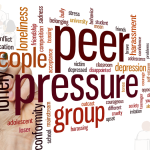In this era, everything, including currencies, is undergoing rapid digitalization. With the continuous evolution of computers and the internet, we must ensure everyone is an active participant. African languages already face the issue of being underrepresented in the technological revolution.
Table of Contents
Why is the Revitalization and Preservation of the African Languages So Important?
Apart from the challenge of underrepresentation, the digital realm predominantly emphasizes the education of European languages, potentially endangering African indigenous languages. This imbalance puts these languages on the brink of extinction.
African indigenous languages have historically served as vital tools for safeguarding African cultural heritage. They carry within them the rich histories, western stories, traditions, and identities of diverse African communities.
These languages are more than just communication tools. They are an intrinsic part of our collective heritage. Thus, ensuring their presence in the digital sphere is not just a matter of linguistic diversity. It’s about preserving a profound connection to our roots.
To grasp the gravity of this issue, consider these languages as the guardians of stories passed down through generations, the carriers of cultural nuances, and the keys to understanding Africa’s incredibly diverse societies. Their preservation in the digital age is imperative for future generations to connect with their ancestry, comprehend the complexities of African culture, and foster a profound sense of belonging.
Moreover, as Africa continues to emerge as a global player, its linguistic diversity presents a unique competitive advantage. The ability to communicate in various African languages opens doors for better international relations, trade, and cultural exchange. It’s a reminder that linguistic diversity is not a challenge but an asset, enriching the global discourse and contributing to Africa’s standing on the world stage.
Therefore, the preservation of African languages is not just about protecting linguistic diversity. It is about safeguarding our collective heritage, empowering future generations, and showcasing Africa’s unique place in the world. It’s a mission that transcends borders, demands action, and invites us all to embrace and celebrate the linguistic tapestry of Africa.
Subscribe to our YouTube channel today. Get premium article updates across various niches.
Conscious Efforts That Can Be Made to Revitalize and Preserve African Languages
To achieve this revitalization and preservation of the African languages in the digital sphere, concerted efforts are needed. Some of these include:
-
Educational curriculum
Including African indigenous languages in the educational curriculum, from preparatory classes through tertiary institutions, is a fundamental step in revitalizing and preserving these languages in the digital sphere. While this practice is already implemented at lower educational levels, its extension to higher institutions is crucial.
Currently, this extension mainly occurs for those majoring in African indigenous languages. To enhance language preservation, the curriculum should encompass a broader spectrum, ensuring that all students have exposure to and proficiency in African languages.
This approach instils a sense of cultural pride, promotes multilingualism, and equips future generations to engage confidently with digital content in their native languages, thereby safeguarding linguistic diversity in the digital era.
-
Inclusive government policies
Inclusive government policies play a pivotal role in revitalizing and preserving African languages in the digital sphere. When governments recognize and support linguistic diversity as a national asset, they can implement policies that promote the use of native languages in digital spaces.
This includes ensuring that official websites, educational materials, and public services are available in indigenous languages, fostering a sense of inclusion for speakers of these languages. Government initiatives can also fund the development of digital tools and content in African languages, making it easier for people to communicate, learn, and conduct business online in their native tongues.
By embracing these inclusive policies, nations can celebrate their linguistic heritage, strengthen cultural identities, and ensure the digital age becomes a platform for language revitalization and preservation
-
Digitalization of knowledge
The digitalization of knowledge represents a remarkable opportunity to revitalize and preserve African languages in the digital sphere. By creating and sharing content in native languages online, we can ensure that a wealth of traditional knowledge, stories, and cultural practices are not only preserved but also made accessible to a global audience.
Digital libraries, archives, and educational platforms can serve as repositories for indigenous wisdom and language resources, empowering both current and future generations to engage with their heritage.
This process of digitizing knowledge can foster a sense of pride and identity, encouraging African communities to use and celebrate their languages more widely in the digital age, thereby ensuring their endurance and vibrancy.
-
Economic empowerment
Economic empowerment can serve as a powerful tool for revitalizing and preserving African languages in the digital era. When individuals see tangible economic benefits in using their native languages to speak, write and for music, as in Afrobeats, they are more motivated to actively engage with them.
One way to achieve this is by creating job opportunities tied to language skills. For instance, offering translation and localization services for digital content in African languages can be a lucrative venture. Additionally, supporting local businesses that promote linguistic diversity, such as bookstores, cultural centres, and media outlets, can stimulate economic growth within communities that value their languages.
When African languages become assets in the job market and local economies, their preservation and continued relevance in the digital sphere are more likely to be sustained.
-
Technological inclusion
Technological inclusion, particularly the integration of machine learning and artificial intelligence (AI), can play a pivotal role in revitalizing and preserving African languages in the digital sphere. Machine learning algorithms can be employed to develop language learning apps and online courses tailored to African languages, making language acquisition more accessible to a broader audience.
Furthermore, AI-powered translation tools can bridge language barriers by offering accurate and real-time translations between African languages and more widely spoken languages. This facilitates communication and content creation in native tongues. By harnessing these advanced technologies, we can empower individuals to engage confidently with their heritage languages, ensuring they remain vibrant and relevant in our increasingly digital world.
Lastly, the development of digital tools and software that support indigenous languages, including keyboards, fonts, and translation software can go a long way.
Want more insights about Africa to be dropped into your inbox? Make the best decision ever today by subscribing to our newsletter.
Conclusion
In summary, localized content is a potent means of revitalizing African languages in the digital sphere. It preserves culture, enhances inclusivity, boosts education, fosters economic growth, and ensures that the digital age benefits everyone, regardless of their linguistic background.
Edited by Priscilla Ajayi.
About Author
- Oyinade Afe is a versatile writer, designer, and filmmaker with a passion for telling stories. With more than 3 years of experience in content writing, she excels in crafting compelling narratives, visually stunning designs, and producing engaging films. Oyinade is dedicated to authenticity, creativity, and inspiring others through her work.
Latest entries
 LifestyleFebruary 7, 2024When to Consult a Financial Advisor to Manage Your Earnings
LifestyleFebruary 7, 2024When to Consult a Financial Advisor to Manage Your Earnings Business InsightsJanuary 8, 2024How to Conduct a User Interview for a Product: From Preparation to Execution
Business InsightsJanuary 8, 2024How to Conduct a User Interview for a Product: From Preparation to Execution
 LifestyleDecember 1, 2023Peer pressure Among Nigerian Youth: The Good and Bad
LifestyleDecember 1, 2023Peer pressure Among Nigerian Youth: The Good and Bad

